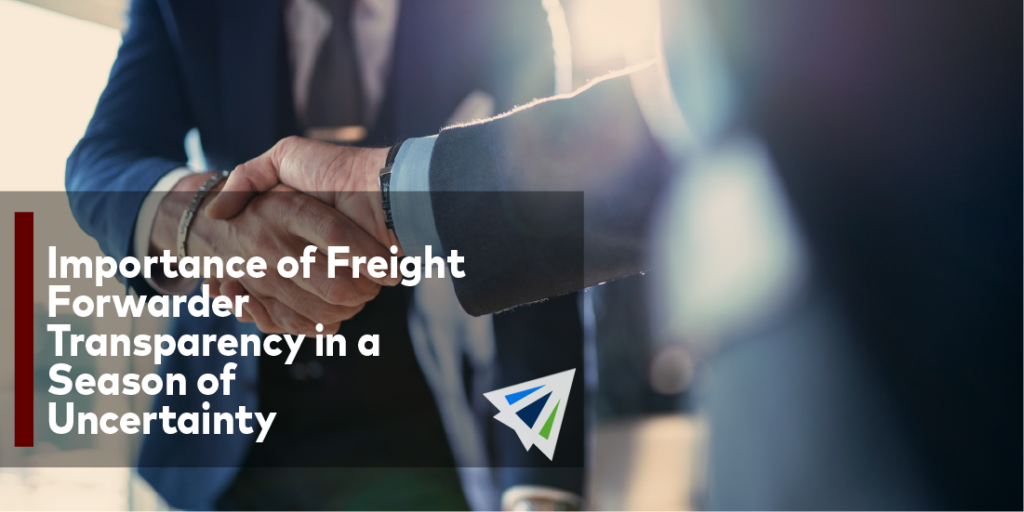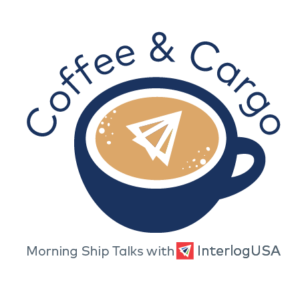Competitive Edge
October 13th, 2021
Stay Current with Interlog’s Weekly Newsletter:
Sign up for our next Coffee & Cargo webinar –> CLICK HERE
Ocean Freight Market Update
Europe –> North America:
Rates: Expect October 15th GRI.
Space: Limited – Expect delays to US South West. Long Beach is highly congested, there are about 10 less vessels waiting at bay, which is improvement, but things are still very backed up.
Capacity: Tight – Fewer bookings to inland rail ramp destinations. Terminal congestion is critical.
TIPS: With capacity tight, it is recommended to book on premium services. Recommend to book 4-5 weeks in advance. Work on obtaining booking before 10/15 for best rates.
North America –> Asia:
Rates: GRI expected, focused on reefers. Both Oct. 15th & Nov.1st GRI’s expected.
Space: Space is still very tight. USEC has been better for space than USWC
Capacity: Steady for Standard Containers.
TIPS: Looking into re-routing options may be helpful to avoid port congestion at LGB and OAK. Seattle and Houston may be good alternatives for your cargo.
Asia -> North America
Rates: Premium rates are steady, no GRI predicted as rates remain trending downwards.
Space: port congestion is lessening however capacity is still very tight. A bit of alleviation due to lack of cargo during Golden Week and the power restrictions in China.
Equipment Availability: near-normal conditions, except limited 45HC availability.
Did You Know?
There are over 16,800 miles of rivers and streams in Minnesota- where Interlog’s HQ is located!
Freight News
Oil spill off California ports may have been caused by a container ship
Early last week approximately 144,000 gallons of oil was estimated to have spilled from a pipeline off Huntington Beach, California. Some are speculating that it may have been caused by a container ship, due to the vast number of commercial ships stuck waiting or that have been drifted. Rebecca Ore, a Coast Guard Captain said, it was found that 4,000 feet of the 17.7-mile pipeline was laterally displaced by 105 feet and a 13-inch slit was found in the pipeline, which is the likely cause of the oil released reported by Freightwaves. Martyn Willsher, CEO of Amplify Energy who is the operator of the pipeline and platform says, he is not going to speculate what happened here, but he mentioned that the pipeline that has been displaced, for it to be moved 105 feet is… not common. While the area is overseen by Marine Exchange and U.S. Coast Guard Vessel Traffic Service, there is Automatic Identification system (AIS) ship-positioning data that is available commercially.
This spill will not affect cargo operations, as the Port of Los Angeles operations and arrivals have not been impacted. The spill also doesn’t seem to have impacted the anchorage situation.
Ship fuel prices are at its highest since 2014, what to expect going forward
Marine fuel is getting more expensive as the days go by, which isn’t great news for ship operators on the coast side and is yet another issue for cargo shippers. Alphatanker said last Thursday that, “there are expectations that crude, and therefore marine fuel, could move higher in the coming weeks as oil markets tighten further,” reported by American Shipper.
The average price, at the top 20 ports, of IFO 380 HSFO burned by ships with scrubbers have risen to $514.50 per metric ton, which is up 51% since the beginning of the year, according to Ship and Bunker data and reported by American Shipper. The average price of VLSFO, most common fuel used by most commercial ships since IMO 2020, was $601 per ton, up 42% since the beginning of the year.
These rising prices have had an impact on container shipping and dry bulk and tanker shipping. Containerized cargo shippers are currently experiencing higher bunker surcharges and dry bulk shipping capsize spot rates just reached $80,000 per day for the first time since 2009. One positive note amidst these rising prices, spot cargo rates for crude tankers have been improving.
Sign up for our
industry answers
Our team works to provide valuable, unique, and relevant content to assist you in finding solutions. Sign up now.

